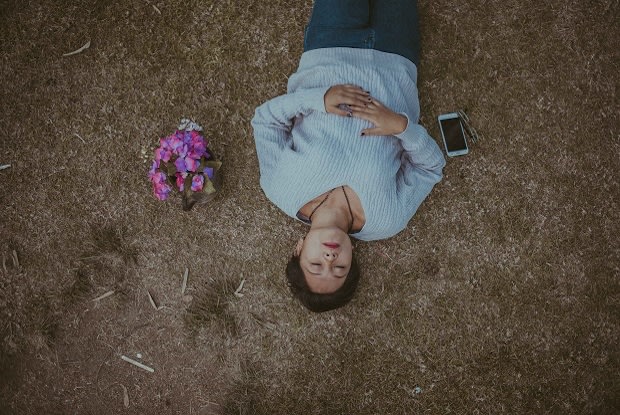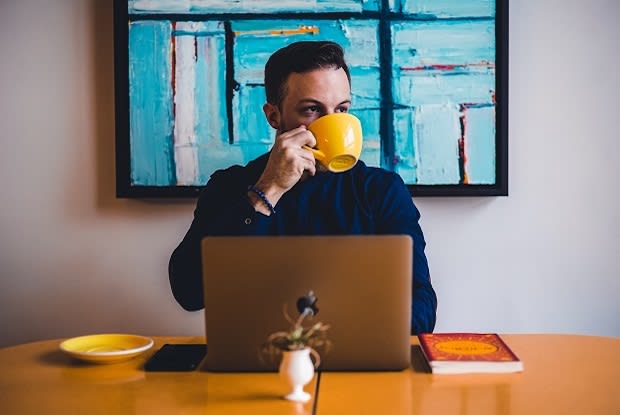Table of Contents
I. Generalized anxiety disorder
III. Cut out drugs and alcohol
Generalized anxiety disorder
Anxiety is an emotion every person has felt at one point in their life. But for some, this universal emotion can affect everyday functions. Generalized anxiety disorder (GAD) is more than just your usual worries, but is a debilitating condition. GAD is characterized by persistent and excessive fear concerning health, work, family, or other issues. These fears are typically out of proportion with reality, and people with GAD expect the worst-case scenario when there is no reason for concern.
Around 3 percent of the United States population has an anxiety disorder, but this condition can be challenging to diagnose. As mentioned above, everyone experiences anxiety from time to time, so many who have excessive fears or worries may think their behavior is normal. GAD is diagnosed when a person finds it difficult to control their worry on more days than not for at least six months. Your doctor may prescribe you Lexapro (escitalopram) or Effexor XR (venlafaxine) to help combat the symptoms of generalized anxiety disorder. [1]
Generalized anxiety disorders also encompass the following disorders:
- Panic disorders
- Obsessive-compulsive disorder (OCD)
- Social anxiety
- Phobias
- Post-Traumatic stress disorder (PTSD) [2]
Anxiety disorders often present themselves with symptoms that can include trembling, nervousness, hyperventilation, fatigue, and increased heart rate. An anxiety disorder can significantly impact your work and family life, so it is crucial to find a treatment plan that is best for you. Anxiety disorders are often initially treated with antidepressant medications like Lexapro. These medications help restore the balance of chemicals within the brain to improve mood. Medications are a great start to a successful anxiety treatment plan, but drugs should be used in combination with several techniques to conquer your anxiety. Read on to learn more about ways to limit feelings of stress in your life. Several studies show that modifying your diet can have beneficial effects on your mood. A diet rich in whole grains, vegetables, and fruits is a healthier option than simple carbohydrates. Processed foods can leave you feeling sluggish and fatigued, which may sour your mood further. It is also essential not to skip meals because drops in blood sugar can make you feel jittery, which can worsen your anxiety. Consider some of these healthy foods to add to your anti-anxiety diet: Caffeine is a stimulant, which can intensify feelings of anxiety. Generalized anxiety disorders can manifest itself in the forms of irritability, sleep disturbance, fatigue, restlessness, and muscle tension. The jittery effects of caffeine can make these symptoms more intense. Caffeine stimulates a person’s fight or flight response, and this can also trigger anxiety attacks. If you have anxiety and are prone to feelings of nervousness, you may want to cut down on your coffee or energy drink consumption. Cutting down on caffeine can also improve your sleep schedule, which is vital in an anxiety treatment plan. Research shows that people with anxiety are more likely to have a dependency on drugs or alcohol than the general population. Many people with social anxiety consider alcohol a “social lubricant” that makes it easier for them to interact in social situations. If a person with social anxiety develops a dependency on alcohol, they are more likely to have severe symptoms of anxiety. Contrary to popular belief, drugs like marijuana may increase anxiety. Regularly consuming cannabis can lead to severe anxiety, panic, and paranoia. Drugs and alcohol temporarily depress the part of the brain that is associated with inhibition, but that feeling cannot be sustained. If you have anxiety, it is vital to cut out your dependence on alcohol and drugs to live your healthiest life. [4] Everyone should participate in exercise for their health, but it can be especially beneficial for those with anxiety. Exercise stimulates the brain and releases a plethora of hormones, including dopamine and endorphins. These hormones can improve your mood and help get rid of chemicals in your brain that make you feel stressed or anxious. [5] You don’t have to participate in strenuous activity routines to receive benefits from exercise. Simple aerobic exercise like a bike ride, dance class, or brisk walk can improve your mood and anxiety symptoms. Exercise not only works on your brain, but it also acts as a distraction from the thing you are feeling anxious about. If you exercise regularly, then you can build up resilience against stormy emotions. Exercise can be a fantastic coping mechanism for those struggling with anxiety. To maximize the benefits of exercise, you can: If you are experiencing anxiety, therapy can help order the flurry of thoughts in your head. Anxiety therapy can be beneficial long-term because it uncovers the underlying causes of your worries and fears. Cognitive-behavioral therapy (CBT) is most widely used for anxiety disorders. A CBT therapist can help you address negative patterns and distortions in the way you view yourself and the world. CBT challenges your negative thoughts and tries to replace them with realistic ones. CBT can provide anxious people with coping skills they can use for the rest of their life. [7] When you are overwhelmed with feelings of stress, meditation can help navigate your stressors and quiet your mind. You can meditate with the help of an app or find a quiet space to relax. Once comfortable, you can sit with your thoughts and painful feelings without having to analyze, suppress, or encourage them. Mindfulness, combined with CBT, can be the perfect combination to unearth the cause of your worries. Meditation can become the peaceful place your anxious brain can escape when feelings of stress start to weigh heavily. [8] The content provided in this article is based on thorough research and in some cases, reviewed by a medical professional. Our goal for the information is to provide helpful, general health informational. It is not intended as a substitute for professional medical advice.
How Improving Your Diet Leads to Better Mood

a. Limit caffeine
Do Drugs and Alcohol Increase Anxiety?
The Benefits of Exercise on Mental Health

The Benefits of Talk therapy on Anxiety
a. Meditation

